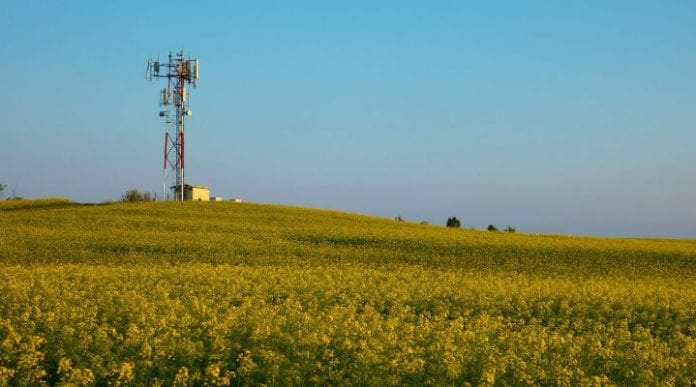RWA asks FCC to investigate Verizon’s coverage claims for Mobility Fund II purposes
The Rural Wireless Association is asking the Federal Communications Commission to investigate Verizon’s coverage claims, which will influence rural areas’ eligibility for Mobility Fund II funds. In particular, RWA claims that Verizon has overstated its LTE coverage in the Oklahoma panhandle by as much as 50%.
To figure out which areas of the country most need their LTE coverage bolstered, the FCC established maps of LTE coverage by asking wireless operators to submit information in 2017 about their then-current coverage, with requirements including 5 Gbps speeds at the cell edge and other specific parameters. The FCC combined that information with Universal Service Fund subsidy data and released the maps of presumptively eligible areas earlier this year, allowing challenges to coverage claims. The challenge period was originally supposed to end on Aug. 27, but according to RWA’s filing, FCC Chairman Ajit Pai has directed the FCC to extend the period for another 90 days (although an official public notice of the change has yet to be issued).
RWA said that its members “are in the middle of the Challenge Process but are expending enormous time and financial resources in their efforts due to inaccurate data submitted by Verizon.” So RWA submitted an informal request (pdf) that the agency investigate Verizon’s LTE coverage and require the company to re-file its data.
The accuracy of the data on which Mobility Fund II eligibility is based has been a concern for smaller carriers and the trade organizations that represent them, including the Competitive Carriers Association as well as RWA — both so that MFII funds are used efficiently and where they are most needed, and because of the cost and time required to challenge the maps, which requires small carriers to conduct testing in the disputed areas.
“RWA continues to receive reports from its members that the cost of participating in the Challenge Process is requiring hundreds of hours of time and hundreds of thousands of dollars to disprove Verizon’s overstated coverage — time and money that would have been better spent investing in their networks to further deploy LTE in rural America,” the organization said. RCR Wireless News has reached out to Verizon for comment.
In this particular case, RWA said that along with local provider Panhandle Telecommunications and a coalition of radio frequency engineers, it is concerned about overstatements of LTE coverage in the Oklahoma panhandle, which covers nearly 15,000 square kilometers. Verizon says it has LTE coverage that meets the FCC’s requirements in almost all of that area. Panhandle hired an engineering firm to conduct testing to see if that held true so that it could challenge Verizon’s claims if necessary. Based on both projections and drive-testing, the engineer firm concluded that Verizon only actually had LTE coverage that met FCC requirements in less than half of the area it claimed to.
With Panhandle saying that conducting the necessary challenge testing in three counties will cost upwards of $1 million — and other RWA members reporting similar costs — the RWA is asking the commission to take on investigation of Verizon’s claims.
“A Commission investigation into the 4G LTE coverage claimed by Verizon, and a determination that Verizon must re-file where coverage data is inaccurate could save prospective challengers millions of dollars apiece,” RWA said. “More importantly, it will open up the challenge process to numerous additional challengers who are currently deterred from participating in the process by the enormous cost involved. Based on the experience of RWA members, even where carriers choose to participate, many such carriers are forced to pick and choose where to challenge due to the cost of participating. This is not the robust challenge process envisioned by the Commission.”

